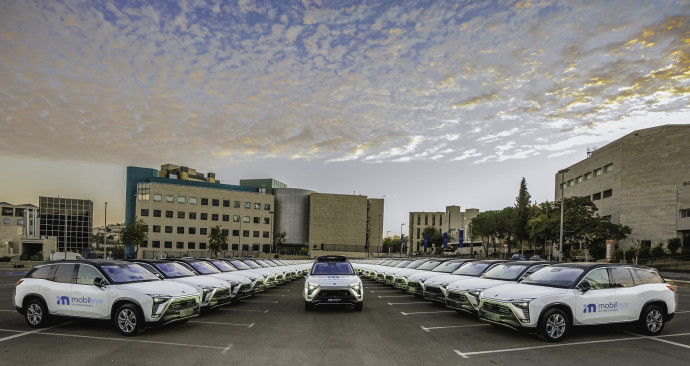I’ve always been amazed by Israeli innovation, and obsessed with the incredible technologies and start-ups incubated by such a small country.
But starting around 2014, I heard more and more Israeli venture capitalists start to wonder, “Why do we keep selling good technologies instead of building great companies? Why don’t we let our winners run?”
Over the years, I had seen the Israeli VC community invest in hundreds of successful Israeli start-ups, enjoying great exits and great returns. However, most start-ups didn’t have access to the growth capital or the experienced leadership teams to make the leap from a local tech start-up to a $1+ billion global enterprise.
From 2013 through 2017, three events played a key part in the evolution of the local perspective. The sale of Waze to Google in 2013 for $1.1b. was a high-profile transaction. Waze had already built a significant brand, with massive adoption and accelerating growth when it was sold.
While it was an exciting transaction for the local market and drew significant global attention, it left many in the local community wondering if it was sold too early.

Several months later, Mobileye went public as the largest US IPO of an Israeli company ever at that time. Less than four years later, Intel acquired the publicly traded Mobileye for $15.3b., marking the largest-ever sale of an Israeli technology company.
But times have changed
In recent years, Israel has let its winners run. Five years ago, 96% of Israeli start-up exits happened via M&A. Last year, just 60% exited through M&A, signaling that Israeli entrepreneurs are increasingly building companies that can create long-term value in public markets. The biggest investors in the world have taken notice.
On September 20-22, a select group of the world’s top technology-focused investors across public and private markets will converge in Tel Aviv to connect with Israel’s fastest-growing and most exciting companies at Jefferies Tech Trek.
It will be the largest institutional technology investor conference ever hosted in Israel.
Our attendees – some who are visiting Israel for the first time and others who have not been here in several years – will engage with a tech ecosystem that has been utterly transformed. Ironically, Israel became relevant for growth investors just at the time when COVID restrictions made it impossible for them to visit.
In 2021 alone, both the size and volume of investments in the Israeli tech ecosystem grew exponentially. Some $25.6b. was invested in Israeli tech start-ups in 2021, five times the amount that was invested in 2016.
More than half this volume – $14.2b. – came from 76 “mega-round” raises of more than $100 million in private companies. By contrast, in 2016, there were only two $100m. mega-rounds in Israel.
ISRAEL, OF COURSE, was hardly the only country to see a historic pace of tech investment in 2021. But there is something different about this place.
This is a country defined by its scientific and engineering talent and entrepreneurial culture. It creates more start-ups per capita than any other country, and accounts for 8% of all the world’s unicorns despite having just 0.1% of its population.
Foreign investment has grown eightfold in the last six years
Many of the world’s biggest investors have opened an office in Israel or have a dedicated senior partner focused on Israel.
In total, foreign investors have accounted for billions of dollars in investment in more than 1,000 Israeli companies.
Israel’s most iconic companies have become attractive to global investors. In just the last few years, global investors have acquired significant stakes in Israel’s largest credit card company and insurance company in addition to its largest telecom provider and leading data center companies.
Israel’s institutional investors are increasingly becoming a source of growth capital. Israel has the highest pension savings rate in the world, with over $760b.
in assets managed by 10 Israeli institutions. To manage the tremendous inflow of assets, Israeli policymakers recently loosened the rules to allow these institutions to make more investments in growth and foreign assets.
It’s not just the volume of deals in Israel that is remarkable; it’s the variety, with the growth of IPOs, sales, private placements, PIPEs, and SPAC mergers. In recent years, we’ve even seen Israeli tech companies start to be meaningful acquirers. This all speaks to the growing depth and sophistication of the Israeli tech ecosystem.
Today, $10b. is the new $1b. Until the 2017 Mobileye acquisition, it would have been unthinkable for an Israeli company to reach a $10b. valuation. While Mobileye was a public company, several private Israeli companies raised capital at or around that benchmark in 2020 and 2021, creating a growing class of Israeli decacorns.
As strong as Israeli tech has been these last few years, it hasn’t been immune from the significant headwinds that hit the sector in 2022. But Israel’s tech companies are well positioned to weather this storm, as many are very capital efficient and have strong global investor partners.
Macro conditions are also providing a tailwind. Israel has stronger economic growth and employment and lower inflation than most other developed economies and even more foreign capital inflows in the wake of the 2020 Abraham Accords.
The Israeli companies and investors gathering at Jefferies Tech Trek each have something immensely valuable to offer one another. The companies can get more capital to let them run longer and investors can invest in world-class companies at more reasonable valuations than just a few months ago.
It is a moment of great opportunity, and Jefferies is thrilled we can bring all these constituents together to help write the next chapter in Israel’s tech growth story.
The writer is managing director and head of Israel investment banking at Jefferies. In his role, he helps to devise and implement Jefferies’ strategy in Israel across products.
